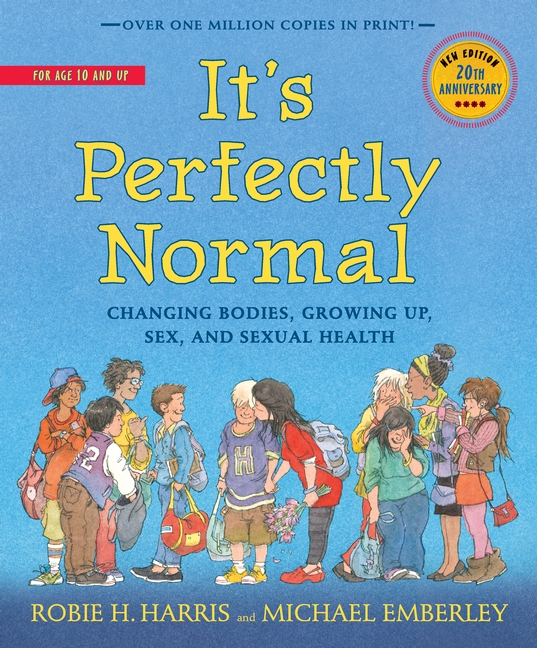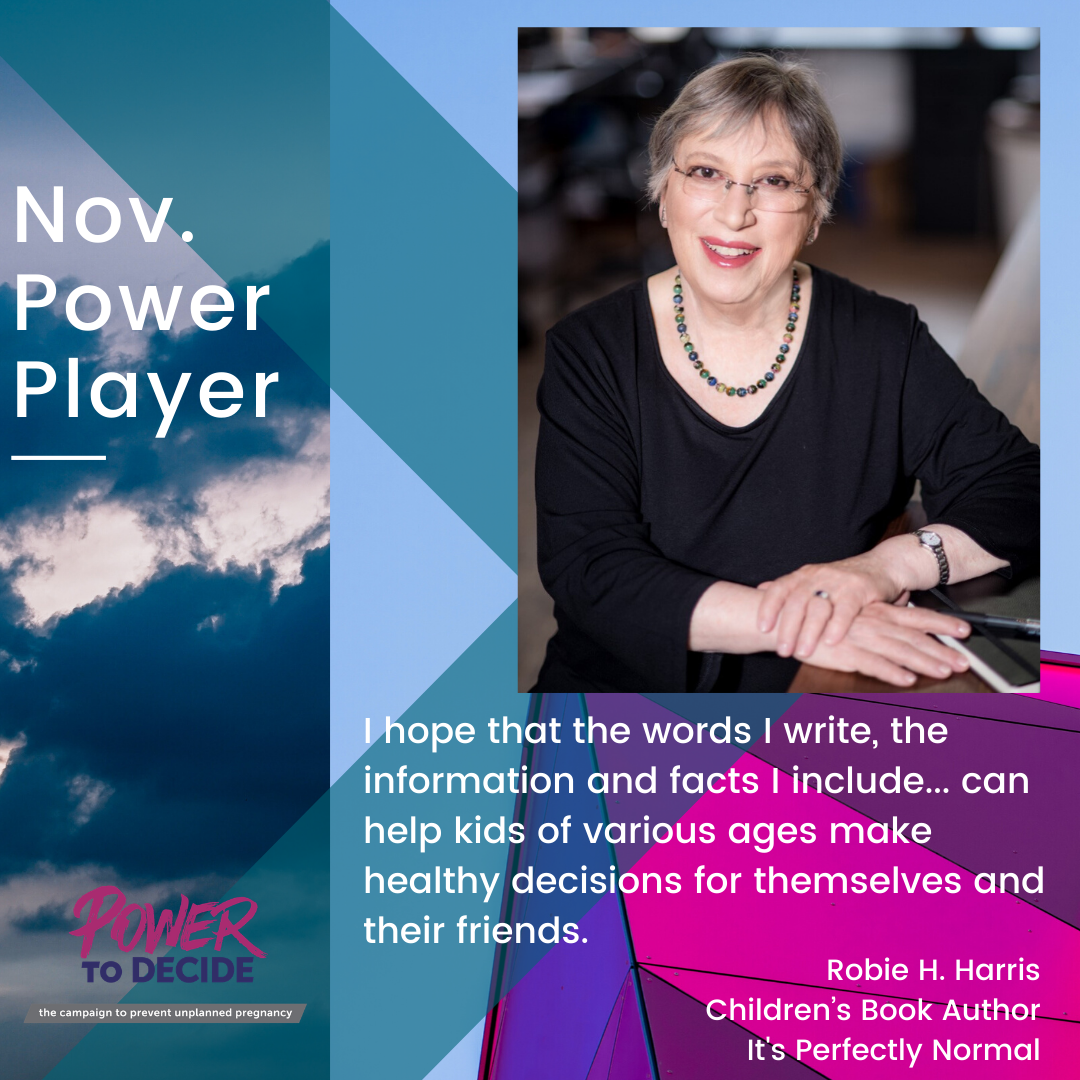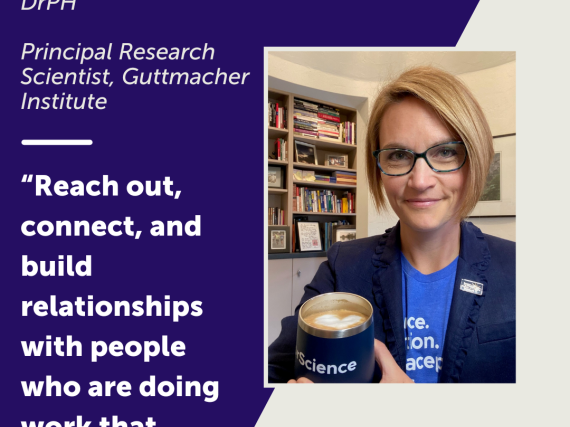November 2019 Power Player
At Power to Decide, we’re committed to uplifting the many individuals on the ground doing the work that matters most. Each month we highlight an individual who is championing the effort to give young people the power to decide if, when, and under what circumstances to get pregnant and have a child. To celebrate Let’s Talk Month, check out this month's Power Player profile.
Robie H. Harris
Children’s Book Author—IT’S PERFECTLY NORMAL, Changing Bodies, Growing up, Sex, and Sexual Health and other books on sexual health for younger children
What work have you done to ensure that young people have access to high-quality sexual health information or high-quality contraceptive services so that they can decide if, when, and under what circumstances to get pregnant and have a child?
I hope that the words I write, the information and facts I include, and the art that is created for my books on sexual health can help kids of various ages make healthy decisions for themselves and their friends. Yet, that can only happen if the information and facts they receive are truthful, as up-to-date as possible, medically and scientifically accurate, and age-appropriate.
Many ask why I include so much information on contraception. My answer: “If you don’t know details about contraception, then how can you decide whether or when to become pregnant and have a baby or whether to wait to have a baby until you are old enough to take good care of a baby or what to do if you are not ready to be a parent?”
How did you get started in your field? What is your driving force?
I have been a writer my whole life. Add to that that my parents made sure that when I was growing up, they talked to me about what at the time was called “the facts of life”—a euphemism for “sexual health.” What first compelled me to write about this topic was a chance meeting I had with an editor, who asked me if I wanted to write a book for kids on AIDS. My answer, “Kids need to know about the virus, but kids also need information about a myriad of other sexual health topics in order to stay healthy.”
What also me compelled is my belief that kids of all ages, younger and older, have the right to have accurate facts and information about their bodies and sexual health. They need this information, and many seek it out. My hope is that my books can and do help provide that information.
What advice would you give to someone looking to effect change in the field that you currently work in?
Talk with kids and teens and ask: “What do you want to know about sexuality? What do you think you need to know?”
Then ask, “What do you think I need to know to write books about sexuality that would be helpful to kids and teens and also make them want to read about the various topics that I put in these books?”
Kids are our best resources. They are honest, live in the moment, and often express their strong feelings. Whenever I add or update topics in my books such as: gender, staying safe on the Internet, or Title X, the language I hear kids use is language I then use in my books, which I am told engages kids when reading my books.
Also, talk with various experts in each of the fields you are writing about so that you understand the facts and the research in order to pass that on in a responsible and clear way to those for whom you are writing.

Why should someone care about ensuring that all kids and teens—regardless of who they are or where they live—have access to the information and contraception they need to live their best life story?
I am always hopeful that all kids and teens will receive the most responsible information about all aspects of sexuality, including information about conception and abortion.
How do we do that when we live in times in which the federal government and state governments are attempting to keep information on topics such as contraception from those who need it? And how do we do that when there are centers that do not give kids and teens accurate information, instead giving them information that is not true and not supported by evidenced-based research?
I believe the best way to serve all kids and teens is to continue the work that we are doing, no matter what.
Is there a highlight of your work that you’d like to share?
What keeps me going is hearing from kids and teens who read my book and then write to me. In that spirit, here are some of the words a 10-year-old wrote me: “I was really insecure about my body and the process of growing up before I read your book, It’s Perfectly Normal. I hated the fact that my body would change, and I would be a different person. While reading your book, I learned that I wouldn’t be a different person, and I wouldn’t have a different personality. I would just have a different body—which might be fun and a little bit scary!”
This 10-year-old went on to write about sharing the book with a friend and wondered if it could be fun even though it was still a little bit awkward to share it with a parent. This child then wrote, “I am almost done with the book. I am reading it with my mom right now.”
Isn’t this what we all hope for—that kids and parents will talk together about sexual health, even though at times it will be a little bit awkward for both?



